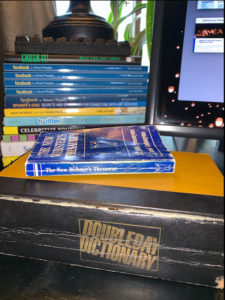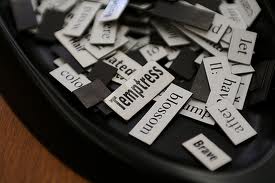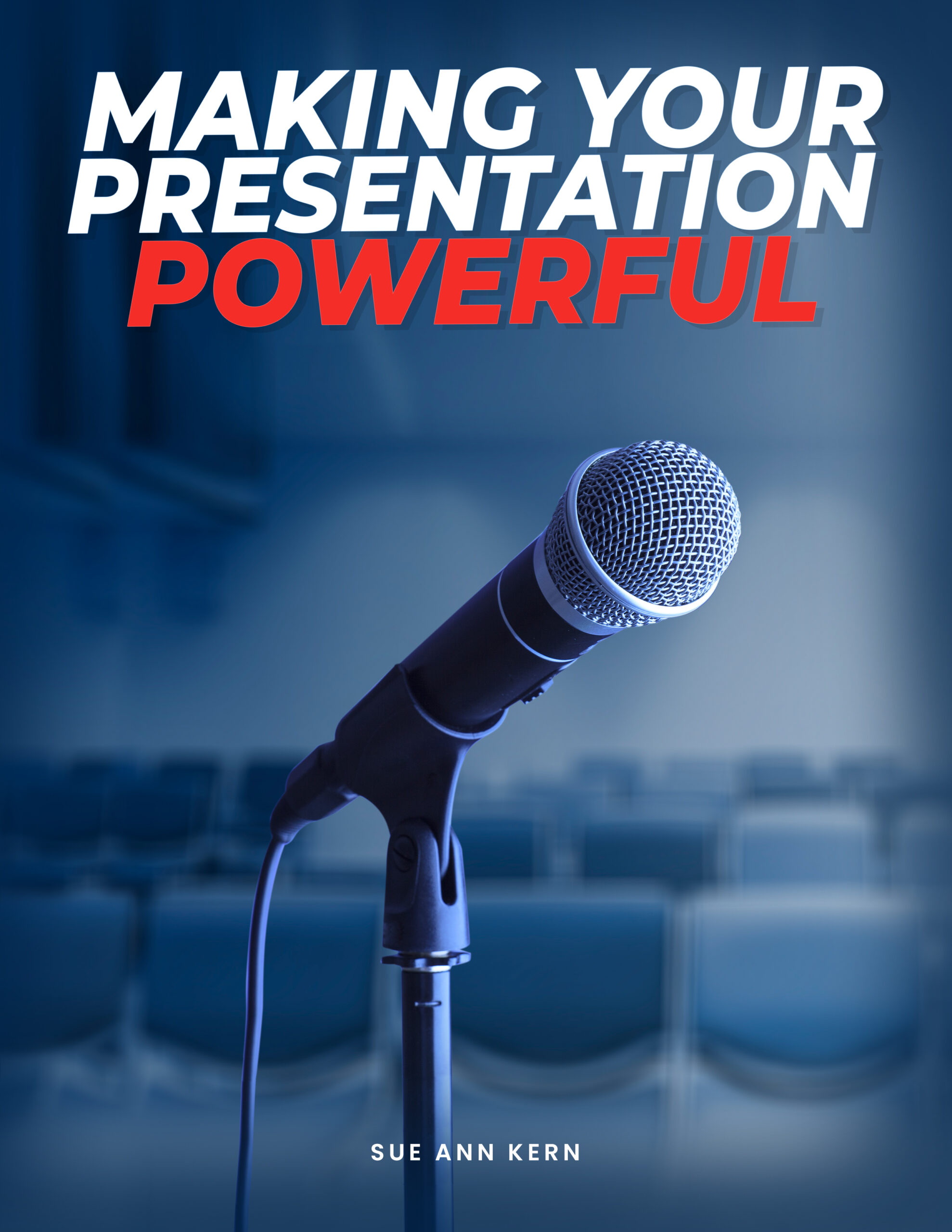Words matter.
The words you choose when you speak in public will incite energy, stir the imagination, invoke emotions, or cause your audience to be bored to tears, or worse, sleep.
When you think you are finished with your speechwriting, read it aloud to yourself in the mirror. Are you boring yourself to sleep? Consider reading it to a friend, mentor, or coach, and watch their reactions. Can you see the excitement in their eyes? Do they laugh? Can you see their connection to your message through their body language?
 Every story you tell can be made more interesting and engaging by careful word selection, or wordsmithing. Yes, you know what is coming next: have your dictionary and thesaurus handy! Luckily, most word processors have spell-check and built-in thesaurus, but (don’t laugh) I keep my high school Doubleday Dictionary and pocket thesaurus within reach when I am writing. And I do use them!
Every story you tell can be made more interesting and engaging by careful word selection, or wordsmithing. Yes, you know what is coming next: have your dictionary and thesaurus handy! Luckily, most word processors have spell-check and built-in thesaurus, but (don’t laugh) I keep my high school Doubleday Dictionary and pocket thesaurus within reach when I am writing. And I do use them!
Choose your words to help you say what you feel, not just what you mean. Choose your words to draw your audience in and make them a part of your story. Consider your words to be the “decorations” of your speech. Was the sky beautiful? Or was it stunning? Picturesque? Exquisite? Was the child sad? Or was he miserable? Forlorn? Distressed? Do you want your speech to be good? Or beneficial? Effective? First-rate?
Have you heard the phrase “Good is the enemy of great?” Being satisfied with good prevents you from reaching for something better, something great.
Adjectives and adverbs are your friends when writing your speech. Let’s restate that: Vivid adjectives and dramatic adverbs are your best friends when writing your speech. Need I say more?
There are clever figures of speech that you can use to also make your speech more interesting to your audience. Try using onomatopoeia, similes, metaphors, or alliteration. What are these? I thought you’d never ask.
Onomatopoeia is the formation of a word from an associated sound. Some examples of onomatopoeia are sizzle, buzz, bang, boom, zip, crunch, crack, and ding.
A Simile compares two fundamentally different things using like or as. “As cold as ice.” “Hard as a rock.” “Life is like an onion: You peel it off one layer at a time, and sometimes you weep.” (Carl Sandburg)
A Metaphor is the comparison of two different things without using like or as. “He was eager to help but his legs were rubber.” “The goalkeeper was an immovable rock keeping his opponents from scoring.” “She had a heart of stone.”
Alliteration occurs when a series of words in a row (or close to a row) have the same first consonant sound. For example, tongue twisters. “Social media allows you to have superficial yet sufficiently satisfying relationships with people who aren’t your close friends.” “The new design will be progressive because of the painstaking planning we have done.” “Rudolph the Red-nosed Reindeer.”
Be careful not to overuse these tools. One of my friends loves to use similes to the point that it gets exhausting and they lose their cleverness. It’s like telling the same joke over and over (and over) again.
 It is extremely important to keep the theme of the event during which you are speaking in mind when choosing your words. Can you call back to the title or tagline for the event in your speech? Be aware of your audience and what jargon they use that is specific to their organization or business, and use it correctly. How would I present this subject matter to a 6th Grade Class? To a college organization? To a church group? How experienced and well-versed is my audience in the subject? Do not speak over their heads or speak beneath their level of competence.
It is extremely important to keep the theme of the event during which you are speaking in mind when choosing your words. Can you call back to the title or tagline for the event in your speech? Be aware of your audience and what jargon they use that is specific to their organization or business, and use it correctly. How would I present this subject matter to a 6th Grade Class? To a college organization? To a church group? How experienced and well-versed is my audience in the subject? Do not speak over their heads or speak beneath their level of competence.
Political correctness is very important in this day and age. You must be aware of your audience’s age, political views, education level, and their religion. You may feel that you are handcuffed and stifled by what you can and cannot say. Too bad. As a public speaker, you are trying to convince your audience, relate to them, and bring them along with you! If your audience feels that you do not respect them, it will be hard to get them on your side. Err on the side of caution and keep your political and religious views to yourself out of the speech (unless that is the purpose!)
Finally, check and recheck your speech to make sure you are using your words correctly and that you know how to pronounce them. Nothing will diminish your credibility like using or pronouncing a word incorrectly. Use a tool like Grammarly to check your written speech for spelling and grammatical errors. Even though you will be speaking rather than submitting an article to a journal, check your spelling. You will be surprised at how incorrect spelling will affect your practicing. If you aren’t familiar with a word, look it up in an online dictionary and you will usually see a speaker icon on which you can click to hear how a word is pronounced.
Using these suggestions will get your speech in impeccable condition so that you are ready for the next set of tools and tricks to make your presentation powerful: Story Telling, Pause, Humor and Other Tools to Use.
